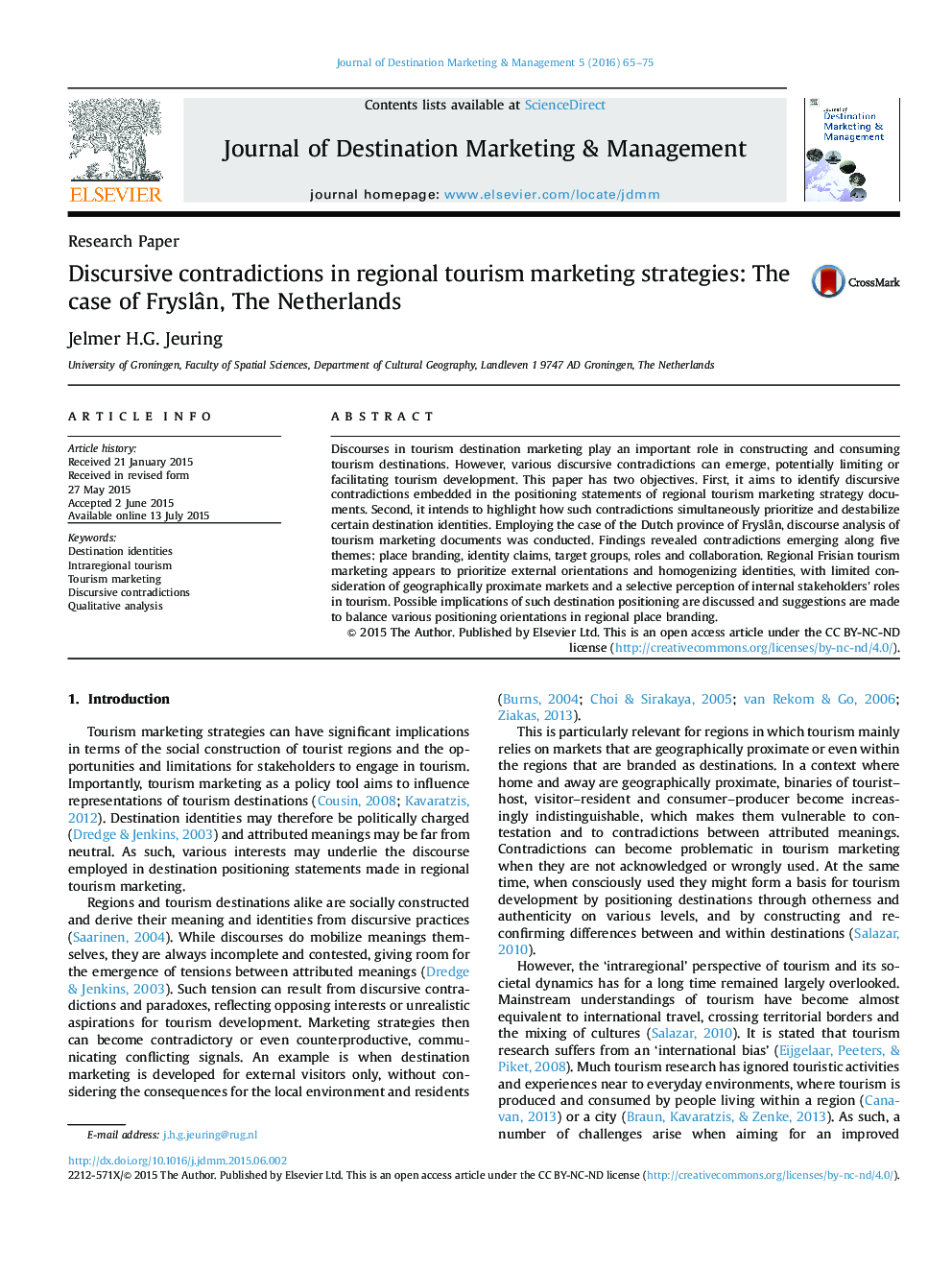| Article ID | Journal | Published Year | Pages | File Type |
|---|---|---|---|---|
| 5108343 | Journal of Destination Marketing & Management | 2016 | 11 Pages |
â¢Discursive contradictions in destination positioning emerge along five themes.â¢These themes are place branding, identity claims, target groups, roles and collaboration.â¢Externally oriented, homogenizing discourse is prioritized above internally oriented discourse.â¢This results in selective accounting for geographically proximate stakeholders.â¢Need to balance homogenizing/differentiating and internal/external discourse.
Discourses in tourism destination marketing play an important role in constructing and consuming tourism destinations. However, various discursive contradictions can emerge, potentially limiting or facilitating tourism development. This paper has two objectives. First, it aims to identify discursive contradictions embedded in the positioning statements of regional tourism marketing strategy documents. Second, it intends to highlight how such contradictions simultaneously prioritize and destabilize certain destination identities. Employing the case of the Dutch province of Fryslân, discourse analysis of tourism marketing documents was conducted. Findings revealed contradictions emerging along five themes: place branding, identity claims, target groups, roles and collaboration. Regional Frisian tourism marketing appears to prioritize external orientations and homogenizing identities, with limited consideration of geographically proximate markets and a selective perception of internal stakeholders' roles in tourism. Possible implications of such destination positioning are discussed and suggestions are made to balance various positioning orientations in regional place branding.
